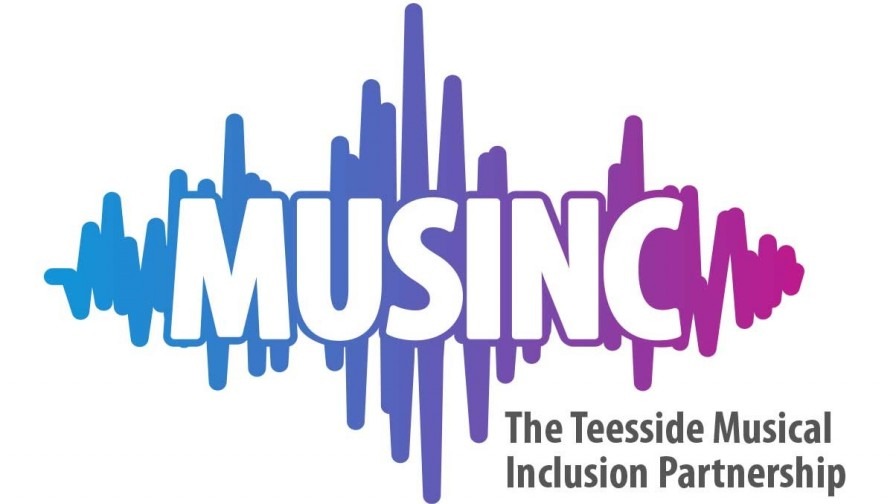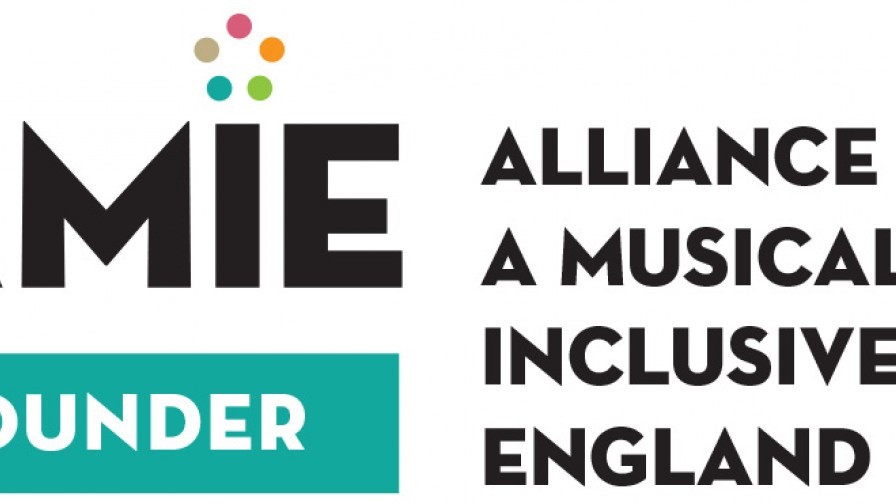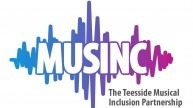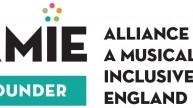Decline in KS3 music uptake and economic deprivation – a coincidence?
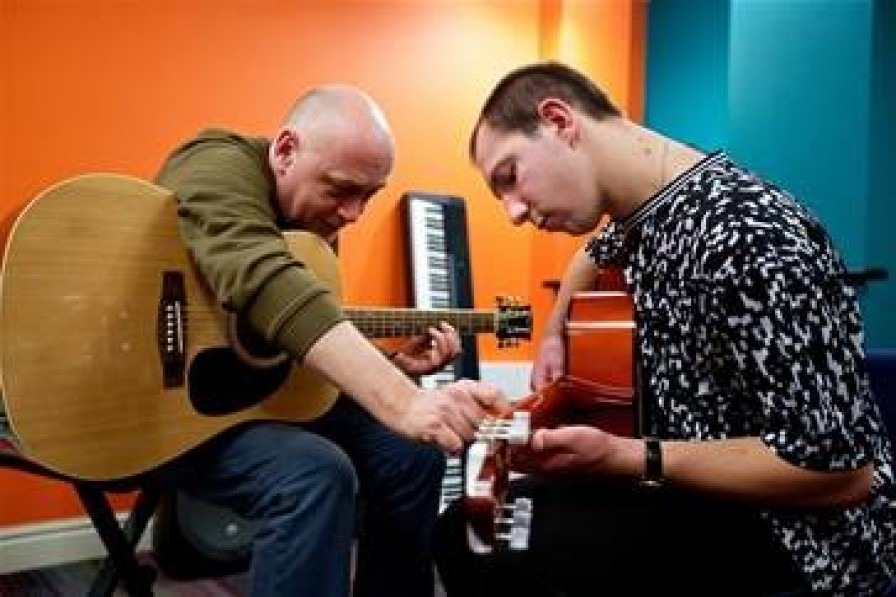
In light of the Governments Call for Evidence for Music Education, I hope this might prove as a thought-provoking blog to inspire change. Whatever your opinion, it matters and we all need to contribute to this important consultation which will affect the musical futures of the young people we work with.
I’m writing this from Middlesbrough, and in a wider context, the Tees Valley, which is often depicted negatively in the media as one of the worst areas in the country to live. I’m not going to delve too deeply into the statistics which paint this picture, as this is not what this provocation is really about. Like any area, Middlesbrough does have its economic challenges but also has a multitude of positive things that are not often highlighted as much as the negative ones.
Earlier this year, it was reported in the Guardian that Middlesbrough was one of the only three local authorities in the country that did not have a single A level music student in the 2017/2018 academic year. Whilst I must mention that this is only one year, and other years has not been the case it nevertheless surely invites some reflection on the decline in take up of KS3 music in general and correlation to areas of high economic deprivation.
I recently had a discussion with a local and very passionate Head of Music in a state secondary school, who I credit these provocations to:
To understand the declining trend in A-level and GCSE music uptake, we need to travel on a backwards journey. In order to take A level music, you need really to have taken GCSE music. In order to take GCSE music, there are certain requirements to be able to play an instrument and/or sing to a decent level. Examining boards differ in exact requirements but generally the performing part of it makes up 30/40%, and therefore if you do not play an instrument or sing, you will be at a significant disadvantage. In order to learn an instrument to the standard that is expected at GCSE level, instrumental lessons are required from an early age, ideally starting in KS2 would give a decent chance of getting a good grade at GCSE. Playing devils advocate, one could argue that someone could still pass the exam without getting high marks for the performance side of the course, and that perhaps one could start learning an instrument on arrival at secondary school in year 7? Well yes, but where is the pride and sense of achievement in needing to say to a student ‘sorry, you need to just write off that 30/40% but chin up, you can still scrape a pass!’ – this is surely not going to make anyone feel good about themselves.
In all other subjects at KS3, a person would be able to make their choices in year 9 based on the information they have learnt in years 7, 8 and 9. This is not the case for music – additional external input needs to have been taking place for several years previously.
So, that said, how does a person get to learn an instrument at an early age so that they have the choice to take music at GCSE if they want – well, we’re now getting to the heart of the problem. To learn an instrument you need money to pay for lessons and instruments. There are very few situations whereby a young person would be able to receive free lessons and be provided with an instrument for several years in a row (if I’m wrong please do correct me and point me in the direction of this!!). Instrumental lessons can take place in a variety of formats and come at various costs, differing from £6-£16 per half hour, depending on the organisation or person delivering and whether it is a small group or individual lesson. The going rate for private tuition is £15 per half hour. And then there’s cost of instruments, sheet music books (photocopies are illegal) and exam fees (which begin at around £40 for the preliminary grade). With the average family having 2/3 children is this really something most people can afford? I don’t think so. Yes there are SOME subsidies available via music education hubs, however even hubs are under ever increasing pressure to generate income. So even with subsidies, it is a luxury that most average households simply cannot afford. Ironically, those with the lowest incomes (measured by schemes like free school meals and pupil premiums) are the first to qualify for the subsidies (which I’m not criticising at all don’t get me wrong), and that leaves a whole middle ground of mainstream family households for whom music lessons are just not an option.
Therefore, to answer the question in the title, of course there is a correlation between low take up of GCSE and A-level music in schools and areas of higher than average economic deprivation.
This brings us to thinking about possible solutions to this quandary.
Option 1) To change the way GCSE is delivered so that the classroom music provision that young people receive in years 7, 8 and 9 is sufficient enough to take GCSE. It’s a possibility, however the exam requirements would probably need to be significantly lower to reflect this, and thus having a knock on effect for A level and further pathways, as well as being demoralising for young people to be pushed through an exam with the basic skills, which probably wouldn’t be enough to equip them for a career in music in the long term.
This solution also does not address the fact that 70/80 % of pupils in the classroom music session in years 7, 8 and 9 are simply not interested in taking music further, which in turn only serves to slow down the progress of those who genuinely ARE interested.
Thirdly, with regard to KS3 classroom music, it is not easy to cater for individual musical interests in such large groups. Music is a subject where small numbers have the biggest impact. If ‘Jonny’ is happy to follow teachers instruction and learn 4 chords on a guitar, then happy days, but ‘Billy’ might be interested in opening the latest music making app on his phone and creating a track. Add this to another 28 pupils all with differing musical interests and you can see how difficult it is to manage these individual needs, as much as teachers might try. Don’t get me wrong, there are some fantastic resources, pedagogies and training aimed at tackling this exact problem, and some teachers doing brilliantly in this area, but is it the most effective solution for young people in the long term?
Lastly, I must highlight that there are now more contemporary options within GCSE music which require skills in production, technology and DJ skills. This is all great and would go so far to supporting those who don’t want to play a traditional instrument, however that poses another problem in that the workforce currently cannot meet those sorts of demands if these were to be the norm. There are plenty of community musicians and artists working in these musical genres, but I would hasten to say there are few with a PGCE or formal teaching qualification so wouldn’t be permitted to teach in schools at any rate.
NB. This would be a good point to add that I am writing this with no genre bias at all. When I talk about instrument learning and voice, I mean in the broadest sense in that all genres of music are valued equally. Regardless of the genre of music, practical skills are essential, whether that involves playing in an instrument, singing and/or using music technology.
Option 2) Music becomes something that is optional, and free of charge, from the start. This is pretty controversial I am aware, however the concept of young people being able to choose their own pathways is not an unfamiliar one in other aspects of life. They can choose hobbies and interests outside of school, and ironically music is usually one of them.
I realise that for many schools, the concept of music becoming extra-curricular is not a new one, and classroom music has dropped out altogether in some schools already, but what if this was by choice and managed carefully, and still valued and supported by schools rather than because of low engagement in the subject forcing it off timetable. What if that hobby that young people enjoy doing so much outside of school in their own way, became something that they could do in school time? And which in turn made them happier to be at school and thrive in other areas? And above all what if they could learn to play an instrument and/or sing with a qualified teacher and it didn’t have to cost a thing.
To clarify, I am talking about taking the amount of resource used for classroom learning (i.e. the cost of a full time salaried music teacher and the time from the timetabled lessons), and refocus this to small groups and individual learning, on instruments and voice, (in partnership with music hubs and services) with teachers being free to focus on individuals’ musical journeys. This offer would then of course be fully inclusive, because it is available for everyone. ‘Jonny’ can have individual guitar lessons, and Billy can have individual support to create his tracks on Garageband and release them on Spotify. It would also mean that those with additional needs (e.g. SEN/D, SEMH etc) would not be treated differently and still be able to access the music offer in his/her own way i.e. through individual or small group lessons and whatever ensemble/group activities could be offered alongside this. I have no doubt this would produce happier teachers, who would inspire and encourage individuals to take up music, and who would be happy to run ensembles, bands, choirs, inclusive ensembles, songwriting groups, music tech groups or all of the above, as standard rather than these sorts of activities being shoehorned into the end of a long day of managing behaviour in the classroom.
Option 3) Ideally perhaps? A mixture of the above. Perhaps it could be possible to deliver music in small groups for part of the year within the curriculum e.g. a group of 8 pupils receive a half term of music and can opt to continue. This provides the most needed exposure to music that is essential even in the later years of education, but also ensure the best environment for pupils to gain the most out of it. They would probably then be more likely to take up the additional opportunity to learn an instrument alongside this.
I am aware that many would argue against taking KS3 music out of the curriculum, because of the wider benefits of music e.g, that it raises cognitive activity/capacity and has wider personal, social, emotional and mental health benefits. This is of course very true for those who engage, however I’d like to invite anyone to tell me that a young person has experienced these wider benefits from simply taking part in KS3 classroom music lessons. Most young people who have experienced the true extent of the benefits of music in a personal, social and emotional context have probably done it a different way (probably a Youth Music project?) If a young person is told that they need to do music because it will ‘help’ them, I am pretty sure it actually won’t help them.
There is a lot of conversation currently in the sector around ensuring that ALL young people should have access to a high quality music education, and that all young people should have the opportunity to learn an instrument or sing. I think there are three words missing from the ends of all of these kinds of statements: IF THEY WISH. To be clear, I’m talking about KS3 only. This is where anyone who has, or works with secondary aged young people regularly will say that they are often very clear about the things they are interested in, and clear about what they want and don’t want to learn. We need to move forward to a place where we support individual progression by listening and responding to young people and taking action to change the outdated systems for their benefit.
To summarise, the way it seems to me is that there is a group of young people who really want to engage with music, and for who it would unlock endless potential for them and for every aspect of their development, but who have barriers to accessing music for various reasons. Then there are groups of young people for whom music is forced upon them when they have no interest whatsoever. It is simply a case of ineffective use of resource, and this issue is what needs to be addressed, and urgently. I’m sure all would agree that it looks unlikely there will be any sudden injections of extra funding for music education anytime soon, so rather than hold out hope that schools and hubs can deliver high quality curriculum music in the classroom as well as free instrumental lessons for all young people, why not see what the results might be by swapping the classroom for the practise room? We may find that the classroom organically gets fuller…
In the simplest terms, the biggest impact that music making has on young people occurs when it happens in smaller groups (in relation to general class size), they have creative input into what they are doing and can take ownership of their own learning, and they feel they have options for development outside of the classroom. If these criteria aren’t met, I think we’re missing the whole point of doing it at all.
With the current state of music education as it stands, what have we got to lose by trying something different?


